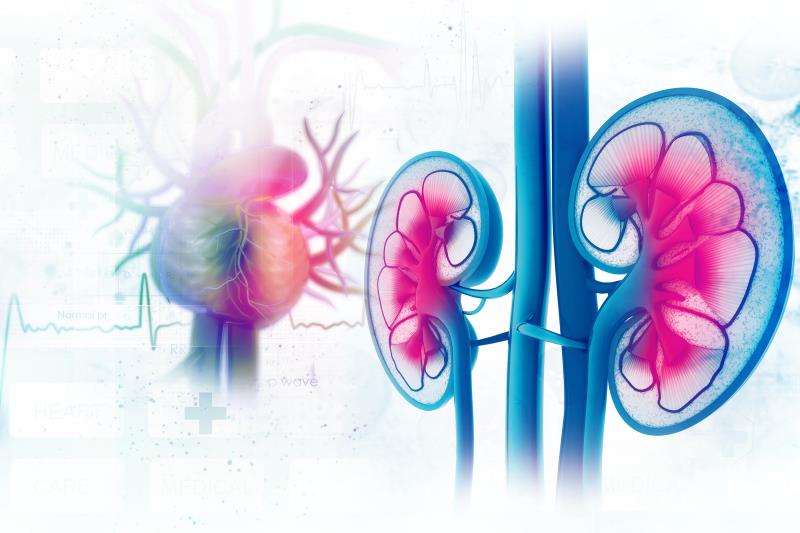
Renal function appears to deteriorate immediately after the index acute coronary syndrome (ACS) event and stabilizes not during hospitalization but, on average, 2 weeks after, a recent study has shown. Serial measurement of cystatin C levels may help assess risks of mortality or ACS recurrence.
Using routine laboratory techniques, researchers measured the changes in creatinine and cystatin C levels in 844 ACS patients (median age, 62.5 years; 77.9 percent male) over time. The primary outcome was the effect of the marker trajectories on cardiovascular death or hospitalization for recurrent, nonfatal ACS. A subsample of 185 patients were selected for the analysis of washout patterns of the biomarkers.
A total of 687 samples were retrieved from the washout patients. Analysis of biomarker evolution found that cystatin C levels peaked on the third day after the index ACS episode, while creatinine reached its highest concentration on the sixth day. Estimated glomerular filtration rate (eGFR), on the other hand, reached its nadir on the fourth day.
The markers took different durations to stabilize. For instance, cystatin C concentrations stabilized after 11 days, such that its plateau was reached 13 days after the index event. Creatinine and eGFR each required 10 and 8 days to stabilize. In all three cases, stability was temporary.
Elevated cystatin C levels were significantly predictive of the primary endpoint (adjusted hazard ratio [HR], per standard deviation increase in 2log concentration, 1.63, 95 percent confidence interval [CI], 1.01–2.66; p=0.043). The same was true for its serial measurement >7 days after index ACS (adjusted HR, 1.63, 95 percent CI, 1.01–2.57; p=0.045).